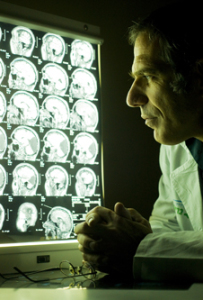
BGU Scientists Unlock the Brain’s Secrets
BGU Scientists Unlock the Brain’s Secrets
August 14, 2014
The Jewish Sound — BGU has long been at the forefront of many brain research breakthrough and studies. Among some of its latest neurological studies are the findings of Prof. Alon Friedman, chair of BGU’s Zlotowski Center for Neuroscience and head of BGU’s Laboratory for Experimental Neurosurgery, a collaboration with Soroka University Medical Center.
Prof. Friedman’s research is focused on the brain-blood barrier (BBB). When the blood-brain barrier was discovered more than 100 years ago, researchers began to understand how it protects the human brain and spinal cord by filtering out many foreign substances from the blood that could disrupt the brain’s balance.
It has been long understood that many diseases can cause a disruption in the BBB.
Today, however, as chronic neuro-degenerative and brain diseases rob more and more patients of their mental health and motor skills, Prof. Alon Friedman is looking for breaches in the barrier that may be the direct cause of many debilitating conditions.
“Dysfunction of the BBB occurs during numerous common neurological diseases, including stroke, epilepsy, trauma, tumors, and infectious and degenerative diseases,” says Prof. Friedman.
Through his experiments, Prof. Friedman has been searching for clues to the onset of epilepsy after brain trauma, focusing on how the brain’s electrical activity, structure and function changes.
In BGU’s Department of Psychology, Prof. Golan Shahar is investigating the connection between stress, the onset and progression of chronic disease, and self-limiting behaviors.
Prof. Shahar, director of BGU’s Center for the Advancement of Research on Stress Related Disorders (CARES), is exploring how the stress of living under missile attacks impacts chronic pain and coping strategies.
“Stress is thought to influence health indirectly by both promoting behavioral coping responses detrimental to health and by activating physiological symptoms,” says Prof. Shahar. “Prolonged or repeated activation of these symptoms is thought to place a person at risk for a range of physical and psychiatric disorders.”
Prof. Shahar’s research also revealed that chronic pain patients who assigned human characteristics to their physical illnesses were better at managing illness-related emotional distress and disability.
Read more on The Jewish Sound website >>




